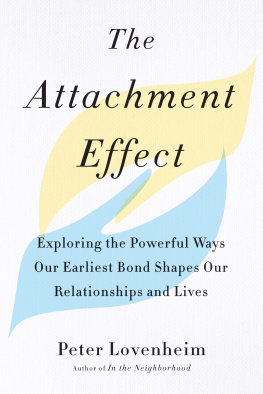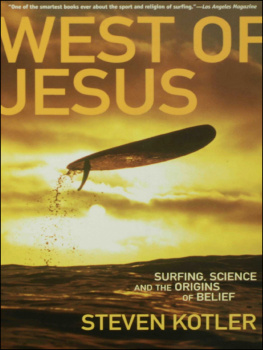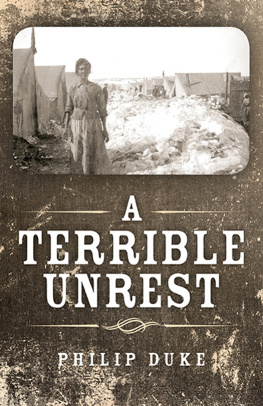Critical Acclaim for James MacGregor Burns and Susan Dunns The Three Roosevelts:
Fresh and original... [an] inspiring and illuminating book.
Herbert Mitgang, New York Daily News
Excellent... Burns and Dunn... succeed in approaching their subjects with grace, respect, and insight. In the end, they do great justice to three remarkable lives superbly lived.
Publishers Weekly (starred review)
Eloquently and insightfully examine[s] the legacy of Americas most powerful and prominent political family of the twentieth century ... A remarkable examination of their intertwining lives and the common thread of their leadership ... Burns and Dunn show how they defined a new brand of courageous political and moral leadership that set a standard for American leaders (on the right and on the left) that endures to this day.
Steve Puleo, American History
No one has done more to shape modern American political life than the three Roosevelts and no one understands their magic better than James MacGregor Burns and Susan Dunn. TR, FDR, and Eleanor all spring freshly to life in these pages as we see them growing as leaders and then changing the course of history. This book is a wonderful read, one to mark and study for years to come.
David Gergen
Scholarly ... James MacGregor Burns and Susan Dunn ride above the scandals and personal heartbreaks to concentrate on the trios passion for change and moral leadership.... The Three Roosevelts is impressive in its breadth of vision.
Ann Hellmuth, The Orlando Sentinel
Highly readable and always entertaining ... An analysis of the Roosevelts that vividly establishes the connections among their careers, ideas, and values, and makes the case for their transformational leadership. Theodore, Franklin, and Eleanor not only changed the very nature of American society, they also altered the history of the rest of the world.
Constance M. McGovern, America
The charge up the San Juan Hill of activist government was one that not even the hyper-energetic TR could complete by himself. It took another Rooseveltor two.James MacGregor Burns and Susan Dunn capture this busy trio neatly in The Three Roosevelts.
Michael J. Ybarra, The Wall Street Journal
Brilliant and bold, this tribute to three great-hearted progressive American leaders is a lyrical, galvanizing gift for the future. In this splendid book Burns and Dunn illuminate the just and vigorous alternative to the muck and cruelty of politics stuck at dead center.
Blanche Wiesen Cook
Elegant... A rattlingly enjoyable book, deftly organized, fluidly paced ... Under the guise of a history book, the authors have written a tract for our times.
Felipe Fernandez-Armesto, The Literary Review
An absorbing, insightful look at this trio of amazing and still-controversial leaders ... [Burns and Dunn] describe with fresh, even-handed judgment not merely leadership styles but policy content. In the process, they give a remarkably comprehensive view. Uncommonly well-written and abounding in new perspectives and understanding, its a cogent yet far-reaching commentary on personality and politics. Both profound and profoundly revealing without deifying its subjects, The Three Roosevelts offers us a vision of leadership virtually unheard of and unimagined today.
Charles Sermon, The State (Columbia, SC)
An absorbing, instructive story told with ambition, imagination, and impeccable scholarship.
Peter Preston, The Observer (London)
James MacGregor Burns... and Susan Dunn have had the interesting idea of threading the history of the United States over the first half of the twentieth century through the fabric of these three Roosevelt lives. Each of these American aristocrats was in his or her way a radical. And each played an important role not only in progressive politics at home, but also in extending American influence in the world A readable, popular account of the American century.
Godfrey Hodgson, The New Statesman
Eloquent... Masterly ... Essential.
Library Journal
The Three Roosevelts will captivate even those most familiar with the biographies of these great twentieth-century political leaders. Burns and Dunn enrich our understanding of why and how government has often been the solution to so many of our economic and social problems. Their book will help reestablish the legitimacy of federal activism and will inspire a new generation of Americans to see public service as a worthy cause.
Robert Dallek
A moving and sometimes humorous account of how Theodore, Franklin, and Eleanor grew from sheltered patricians into leaders of all the people ... A vivid description of how the Roosevelts influenced and were influenced by the history of New York, America, and the world.
John Rowen, The Sunday Gazette (Schenectady, NY)
THE THREE ROOSEVELTS
PATRICIAN LEADERS
TRANSFORMED AMERICA
James MacGregor Burns & Susan Dunn

Copyright 2001 by James MacGregor Burns and Susan Dunn
All rights reserved. No part of this book may be reproduced in any form or by any electronic or mechanical means, or the facilitation thereof, including information storage and retrieval systems, without permission in writing from the publisher, except by a reviewer, who may quote brief passages in a review. Any members of educational institutions wishing to photocopy part or all of the work for classroom use, or publishers who would like to obtain permission to include the work in an anthology, should send their inquiries to Grove/Atlantic, Inc., 841 Broadway, New York, NY 10003.
Published simultaneously in Canada
Printed in the United States of America
Library of Congress Cataloging-in-Publication Data
Burns, James MacGregor
The Three Roosevelts : patrician leaders who transformed America / by James
MacGregor Burns and Susan Dunn.
p. cm.
Includes bibliographical references and index.
eBook ISBN-13: 978-1-5558-4615-2
1. Roosevelt, Theodore, 18581919Influence. 2. Roosevelt, Franklin D. (Franklin Delano) 1882-1945Influence. 3. Roosevelt, Eleanor, 1884-1962Influence. 4. Presidents-United StatesBiography. 5. Presidents spousesUnited States Biography. 6. Social reformersUnited StatesBiography. 7. Upper classUnited StatesBiography. 8. United StatesPolitics and government20th century. 9. United StatesSocial conditions20th century. I. Dunn. II. Title.
E757.B96 2001
973.91dc21
00-060896
DESIGN BY LAURA HAMMOND HOUGH
Grove Press
an imprint of Grove/Atlantic, Inc.
841 Broadway
New York, NY 10003
Distributed by Publishers Group West
www.groveatlantic.com
To the memory of
Andrea Catania (19452000)
and Carl Burns (1921-1965)
CONTENTS

Philadelphia Record, November 9,1932.
(Courtesy FDR Library)
PROLOGUE
Union Square, New York City, April 25, 1865:
Two young boys peer out from a second-floor window of the mansion of the wealthy merchant Cornelius Van Schaack Roosevelt. They are watching the funeral procession of Abraham Lincoln as the mourners tread slowly up the avenue under a drizzling rain. Everywhere the boys look seems bleak: the lowering clouds, lampposts hooded in black shrouds, the facades of houses draped in black, black umbrellas over dark-coated mourners, frock-coated officials, the giant canopied hearse drawn by sixteen black horses. The hubbub in Union Square quiets as an archbishop, a rabbi, and a minister offer prayers.
Next page















